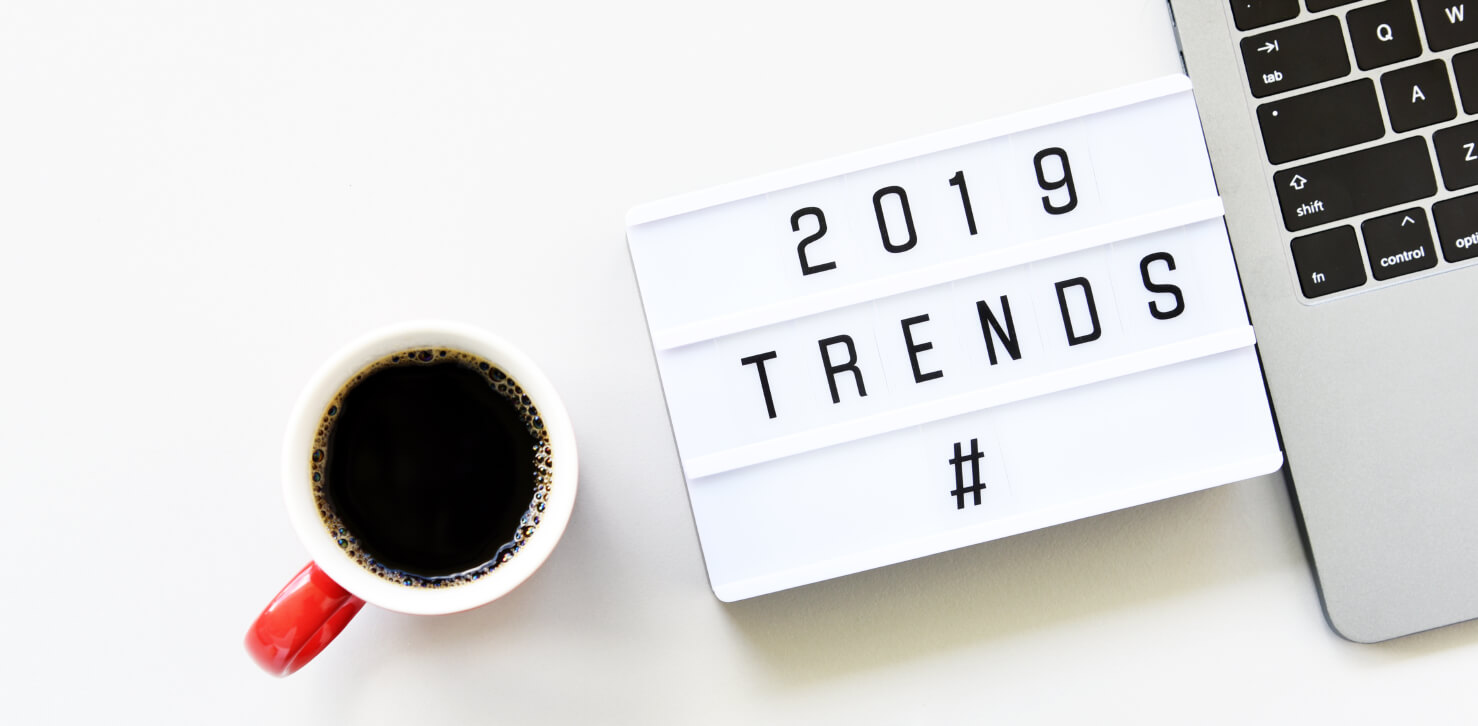Top 10 Slang Terms from 2019

It's the end of 2019, so we put together our list of the top ten slang terms from the year! Our slang experts compiled this perfect, irrefutable list from a complex ranking system, including advanced analytics, color-coded spreadsheets, turtle racing, and throwing darts at a wall. Here are the results:
10. Keep it 100 - Stay true to yourself
Starting off the list is a positive term meant to compliment and encourage a person. It comes from the notion that 100 represents completeness and excellence, and is everyone's goal, whether it be to feel 100% healthy or to obtain 100% on an assignment. You will typically see it used when two people are parting as a way to tell the other person that who you are is great and that you should keep it that way, no matter what happens.
9. Slaps - Is impressive
"Slaps" is another positive term commonly used on social media to praise something for being impressive. It was coined in the mid-2000s but did not gain substantial usage until the mid to late-2010s, peaking in 2019. It may describe a cool person, dope song, amazing athletic feat, awesome car, or thrilling TV show, etc.
8. Cap - Lie
"Cap" gained popularity in 2018 but blew up in 2019. Its increase in popularity was partially due to NBA superstar Kevin Durant when he tweeted, "Cap. Cap. Cap cap cap....u don't have my number mannnnn" on May 22, 2019, when responding to a reporter's false claim that the two of them texted a lot. You will see this most often on social media and in the hip hop community when people call out liars.
7. Meekd - Suppressed
If you enjoy exploring conspiracy theories online, you most likely have already come across the "meekd" term. You will most likely see the term used in online discussions about Internet censorship that involve governments or large corporations covering something up for political or monetary reasons. Common places where these discussions take place include the comment sections of conspiracy-related content on Reddit and YouTube.
6. Bet - You bet
This term is a shortened version of "bet on it" or "you bet" that became popular in 2017 but peaked in 2019. It is a quick way to agree to a suggestion or question, such as "Let's go to the beach," "You wanna go to a movie tonight," or "Willy Wonka gave me nightmares as a kid." It is often used by teenagers on social media, especially on Twitter, Snapchat, Instagram, and TikTok.
5. Woke - Aware of social issues
Woke refers to a person's awareness of current social issues, especially those relating to racial inequalities. It comes from the idea of a person being "woken up" to injustices occurring around him to which he was previously oblivious. It gained prominent usage in 2016 and is still commonly used as racial issues remain at the forefront of American politics.
4. Mood - How I'm feeling
"Mood" became popular in 2019 as a way to tell people how you are currently feeling. You will typically see it as a meme on social media that includes a humorous image or video showing a person's current mood. Commonly shared moods include excitement, sadness, annoyance, exhaustion, jealousy, depression, and confusion.
3. Yeet - To throw something out of rage
This is one of those terms that doesn't make any sense, but a group of people wholly adopt it, and it becomes somewhat of a cultural phenomenon (similar to Harambe). The term is primarily used by teenage online gamers who yell "YEET!" when throwing something in the game or real life (typically out of anger). However, they may also yell it when doing other things like leaving a room or finishing homework. Its origins are unclear, but the most common belief is that a person first uttered it when shooting a 3-pointer in basketball.
2. Tea - Truth
You could say that the "tea" slang term took a while to come to a boil. It originated from drag queen Lady Chablis in the 1994 book Midnight in the Garden of Good and Evil and was well known in the gay community but did not become mainstream popular until the end of 2018 when it exploded on social media. The term comes from "T" in the book, which stands for Lady Chablis' hidden "truth" that she's transgender. The "T" morphed into "tea" in the gay community as slang for people's hidden truths (secrets), which is how it then became associated with sharing gossip in mainstream culture. Some variations of the term include "spill the tea" (share the gossip you know), "strong tea" (juicy gossip), and "weak tea" (boring gossip).
1. Extra - Over the top
It's fitting that "extra" tops our list this year since it describes things that are "over the top" or "excessive." It is primarily seen as a negative term to complain about annoying people, whether they are acting overly dramatic or trying too hard to impress and coming across as fake. It can also simply describe things that are just excessive, like elaborate dinner table decor or a frilly dress. Here's hoping that we all become a little less extra in 2020.